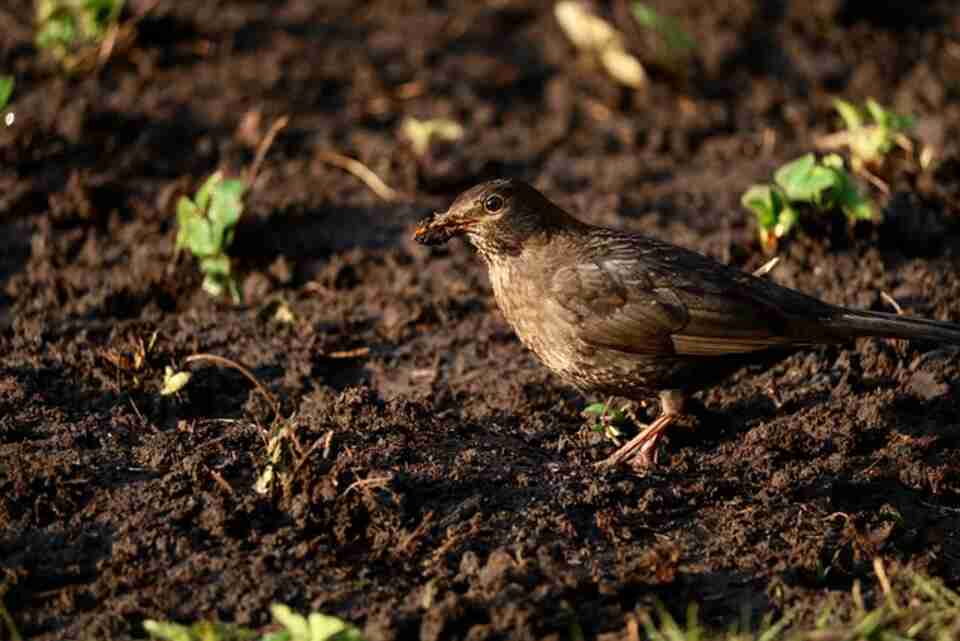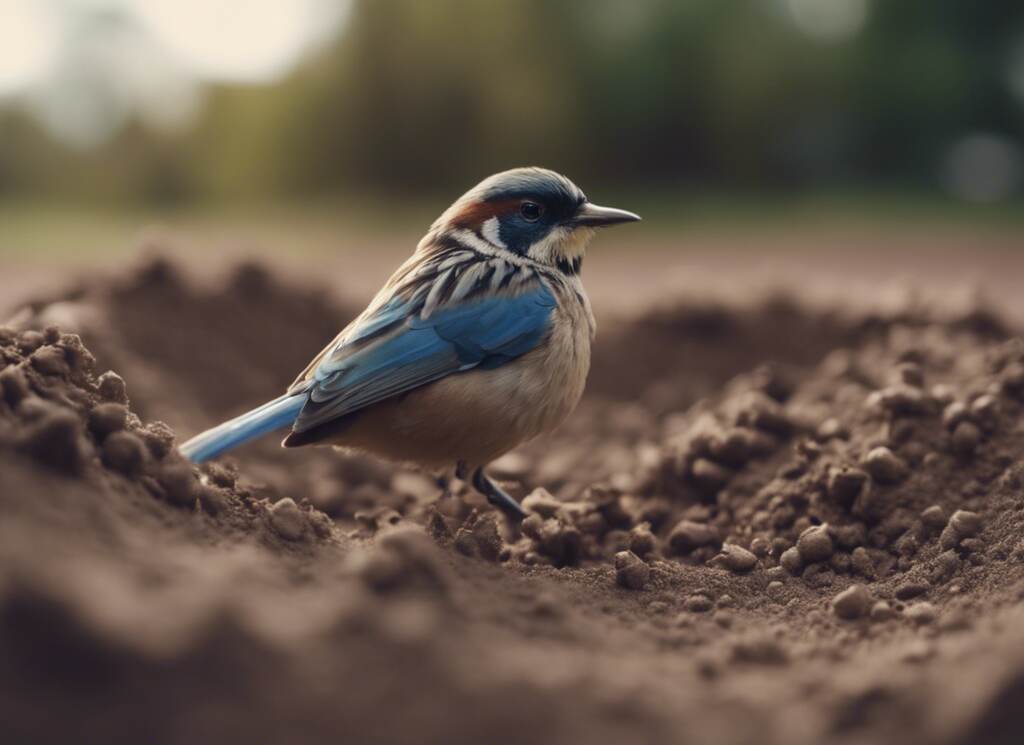Birds are fascinating creatures that exhibit various interesting behaviors in their natural habitat. One behavior that often intrigues nature enthusiasts and bird watchers is the act of birds digging holes in the dirt. This seemingly mundane activity actually serves several important purposes for our feathered friends.
Table of Contents
Reasons Why Birds Dig Holes in the Dirt
Natural Instincts and Foraging Behavior
Birds have innate instincts that drive them to search for food and shelter. Digging holes in the dirt is a natural behavior for many bird species as they forage for insects, worms, seeds, or even small reptiles hidden beneath the surface. By using their beaks and claws to excavate the soil, birds can uncover hidden delicacies that lie beneath the ground.
| Bird Species | Digging Behavior |
|---|---|
| Northern Flicker | Forages for insects by excavating holes in the ground |
| American Robin | Searches for worms and insects in lawns and gardens |
| European Starling | Probes for insects and grubs in soil and leaf litter |
| California Thrasher | Digs for insects and small vertebrates in leaf litter |
| Eastern Bluebird | Hunts for insects, often digging in loose soil |
Nesting and Shelter Construction
Another common reason why birds dig holes in the dirt is for nesting and shelter construction. Many bird species create nests or burrows in the ground to lay their eggs and raise their young. By excavating the soil, birds can create a safe and secure space to protect their offspring from predators and the elements. The depth and size of the hole depend on the specific requirements of each bird species.
Temperature Regulation and Dust Bathing
Birds also dig holes in the dirt to regulate their body temperature and maintain proper hygiene. Some bird species use dust baths as a method to keep their feathers clean and free from parasites. By rolling in dry soil or sand, birds can remove excess oil and dirt from their feathers, which helps to prevent matting and improve their overall insulation.
Territory Marking and Communication
In addition to practical purposes, digging holes in the dirt can serve as a form of territory marking and communication among birds. Certain species may create burrows or dig holes as a way to establish boundaries and advertise their presence to potential mates or competitors. The size, depth, and location of the hole can convey important information to other birds in the area.
Instinctual Behavior and Species Variation
It is essential to recognize that the behavior of digging holes in the dirt can vary among different bird species. While some birds are adept diggers and excavators, others may show minimal interest in this activity based on their dietary preferences, nesting habits, and environmental adaptations. Each bird species has evolved unique behaviors that suit their specific needs and survival strategies.
The act of birds digging holes in the dirt serves multiple purposes that are vital for their survival and well-being in the wild. By understanding the reasons behind this behavior, we can gain valuable insights into the fascinating world of avian ecology and appreciate the diverse ways in which birds interact with their environment. Next time you observe a bird digging a hole in the dirt, take a moment to appreciate the complexity of nature’s design and the remarkable adaptations of our feathered friends.

Impact of Bird Digging Behavior on Ecosystem
Birds play a crucial role in ecosystems through various behaviors, including digging holes in the dirt. This activity may seem random or insignificant, but it actually has a significant impact on the environment. Understanding why birds engage in this behavior sheds light on the intricate relationships within ecosystems.
Importance of Digging Behavior
Birds dig holes in the dirt for a variety of reasons, with each species exhibiting unique behavior patterns. Some birds, such as woodpeckers and nuthatches, dig holes to search for insects and larvae hidden beneath the surface. By digging into the dirt, these birds uncover vital food sources, helping to control insect populations and maintain ecosystem balance.
Nesting and Shelter
Digging holes in the dirt also serves as a nesting and sheltering strategy for many bird species. Ground-nesting birds, like plovers and killdeer, create shallow scrapes in the soil to lay their eggs. These nests offer protection from predators and the elements, increasing the chances of survival for both the adult birds and their offspring.
Seed Dispersal
In addition to foraging and nesting, bird digging behavior contributes to seed dispersal within ecosystems. Birds inadvertently pick up seeds while digging in the dirt for food, and some of these seeds get transported to new locations when the birds fly off. This process helps in the regeneration of plant species and promotes biodiversity across different habitat areas.
Soil Aeration and Nutrient Cycling
Birds that dig holes in the dirt also play a role in soil aeration and nutrient cycling. By turning over soil and creating cavities, birds contribute to the oxygenation of the earth, which benefits soil microorganisms and plant roots. Additionally, the organic matter present in bird droppings enriches the soil, providing essential nutrients for plant growth.
Impact on Invertebrates
The digging behavior of birds can have a direct impact on invertebrate populations within the soil. As birds excavate the dirt in search of food, they disturb the habitat of earthworms, beetles, and other soil-dwelling organisms. While this disturbance may initially disrupt the invertebrate communities, it also creates opportunities for new growth and regeneration in the ecosystem.
Conservation Considerations
Understanding the ecological significance of bird digging behavior is crucial for conservation efforts. Protecting bird populations and their habitats is essential to maintaining healthy ecosystems. Conservation initiatives should focus on preserving nesting sites, promoting habitat diversity, and minimizing disruptions that could affect bird populations and their digging behavior.
The seemingly simple act of birds digging holes in the dirt has far-reaching implications for ecosystem health and balance. By recognizing and appreciating the importance of this behavior, we can work towards better conservation practices and ensure the sustainability of our natural environment.
Conclusion
Birds dig holes in the dirt for a variety of reasons, including foraging for food, building nests, creating shelter, and attracting mates. This behavior is essential for their survival and plays a significant role in maintaining ecosystem balance. While it may seem like a simple action, the impact of bird digging behavior on the ecosystem is profound. By digging holes, birds contribute to soil aeration, seed dispersal, insect control, and plant growth, thereby benefiting various other organisms in the ecosystem.
Moreover, the holes that birds create serve as microhabitats for a wide range of organisms, from insects to small mammals. This ultimately enhances biodiversity and promotes a healthier ecosystem. Additionally, the excavation activities of birds help in nutrient cycling, as they bring buried nutrients to the surface, where they can be utilized by plants and other organisms.
The digging behavior of birds is a fascinating aspect of their natural behavior that has far-reaching implications for the environment. By understanding the reasons behind why birds dig holes in the dirt and recognizing the positive impacts of this behavior on the ecosystem, we can develop a deeper appreciation for these remarkable creatures and the important role they play in maintaining the delicate balance of nature.
So, the next time you see a bird digging a hole in your garden or out in the wild, take a moment to observe and appreciate the intricate relationship between these feathered creatures and the world around them.



